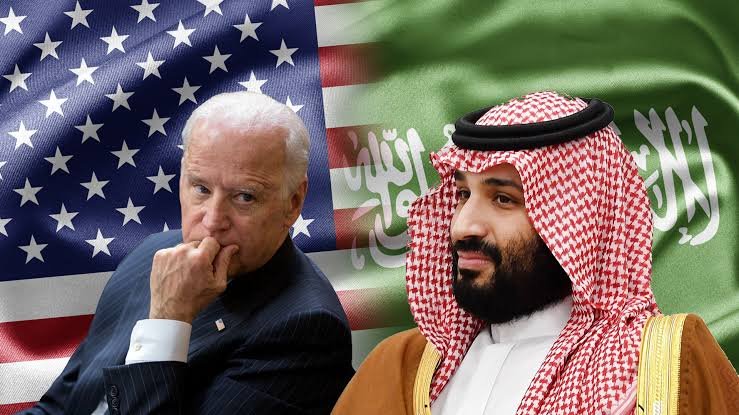Dispensationalism Alienates America from a Quarter of the World’s Population

(RAHNUMA) HYDERABAD: The expiration of Saudi Arabia’s petrodollar deal with the United States without a new agreement signals a potential paradigm shift in global finance, possibly moving away from the U.S. dollar as the dominant reserve currency. This development, while significant in economic terms, also carries substantial geopolitical implications for America.
The original petrodollar agreement was signed in 1974 between the U.S. and Saudi Arabia was a cornerstone of the U.S. economic dominance globally. By agreeing to price and trade oil exclusively in the U.S. dollars, Saudi Arabia set a precedent that other oil-producing nations followed, solidifying the dollar’s position in the global energy market. In return, the U.S. provided military support and security guarantees to Saudi Arabia, ensuring the kingdom’s stability and protection against external threats.
This six-page agreement, signed at Blair House by then-Secretary of State Henry Kissinger and Prince Fahd Bin Abdulaziz Al Saud, who later became king, was hailed by Kissinger as “a milestone in our relations with Saudi Arabia and with the Arab countries in general.” For nearly 50 years, this arrangement not only underpinned U.S. economic strategies but also influenced international relations and geopolitical dynamics.
However, the decision to not renew this contract allows Saudi Arabia to diversify its economic partnerships and sell oil in multiple currencies, including the Chinese RMB, Euros, Yen, and Yuan. This move can be interpreted as a reaction to America’s current foreign policies, particularly its stance on the Palestinian issue, which is compelling Arab countries to seek alternative partnerships to avoid appearing delegitimate.
The U.S. can consider recognizing that its unconditional support for Israel, despite Israel’s disregarding of international law, is causing its traditional allies in the Arab and Muslim world to shift away from it. This friction has real consequences, as evidenced by the potential shift away from the petrodollar system. A more balanced and fair approach to immediately solving the Palestinian issue by using its hegemonic power, is not only a moral imperative for the U.S., but also a strategic necessity to maintain strong alliances and economic partnerships in the Middle East with countries who have historic ties to the U.S. and significantly larger populations.
As the global financial landscape evolves, the U.S. needs to reassess its foreign policy priorities and adopt a more nuanced stance that acknowledges and respects the legitimate concerns of all parties involved. Failure to do so risks further alienating key partners and the hearts and minds of nearly one-fourth of the world’s population. Such strange foreign policy based on dispensationalism only diminishes America’s otherwise welcome and desirable influence on the global stage, especially in the Arab and Muslim world. Not doing so will only solicit a rise statements like this made by Turkey’s President Erdogan, “Starting with the US, members of the UN Security Council must pressure Israel to ensure a ceasefire. Israel is continuing its massacres in a cruel way and especially America’s stance as Israel continues its massacres is truly upsetting us.”








